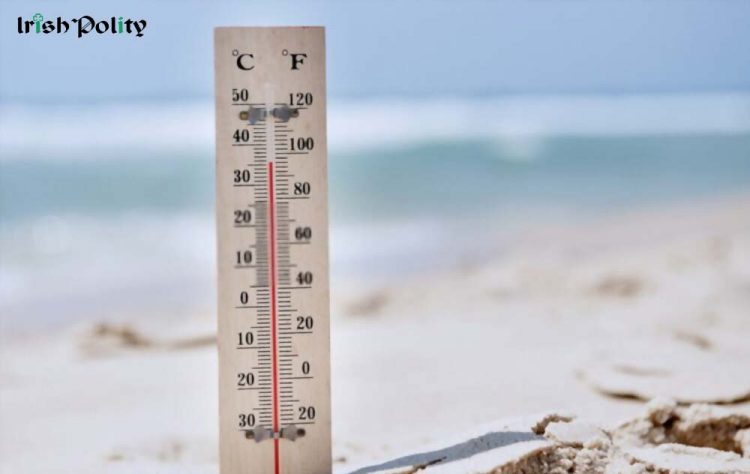Heatwaves have become more intense over time in some parts of the UK. Some cities in Britain recorded their hottest-ever days this summer. The effects of climate change in the UK have increased temperatures and will hurt humans.
The UK Will Face Hot Ways Again
The UK Met Office had reported an extreme heatwave from 16 to 19 July 2022. The office recorded extreme temperatures on the 18th and 19th of July at 40.3 C°. The extreme heatwave in July 2022 broke a historical record in the UK. The extent of the heatwave was remarkable in England, while Scotland also recorded 35 C° for the first time. The daily minimum temperature was also a new record in the UK at 25 C°. The recent heatwave in Europe is associated with a global wave pattern. Some of the other European countries have even experienced a severe heatwave. Temperature exceeded 40 C° in France, 45 C° in Spain, and 47 C° in Portugal. Temperatures in British areas are likely to remain above average levels in August. These high temperatures stem from the effects of climate change in the UK.

Heat Weather Will Damage Earth and Human Life
Climate change is happening and is the biggest challenge of this age. This change will cause irreversible damage to the earth and the way of life. Effects of climate change in the UK are costly, and the government should take action to reach net-zero goals. The UK aimed to limit warming to 1.5 C°, but the evidence proves the country is warming up to 4 C°. Even under the current lower warming plans, the government needs further actions to save society from climate change consequences. A risk assessment report has concluded that sixty-one threats affect multiple sectors in the UK. Effects of climate change in the UK are deterioration in soil health and agricultural productivity. Water availability, energy supply, human health, the built environment, and infrastructure will also affect water availability.

Human-caused Climate Change Warms up the Earth
Climate change has hugely affected the planet and resulted in extreme weather, especially heatwaves. Computer models have suggested that human-caused climate change will reach an unpredicted level. Several areas in the UK experienced temperatures over 40 C° this summer, earlier than previous predictions. In 2020, the Met Office predicted this type of heat would hit the UK somewhat by 2050. Meteorologists have not expected to see this heatwave exceeding records as early as 2022. Effects of climate change in the UK have caused the heatwave to skyrocket in the 2022 summer. Extreme temperatures in the UK are the consequences of human emissions of greenhouse gases. High temperatures will continue in the future, and this is not typical summer weather. Society should prepare for the risks of more heat events soon.
UK Became Hot Sooner than Predictions
Hot weather affects the body and may strain the heart and lungs. Older people, young children, and those with pre-existing health conditions are at higher risk. When the UK issued a red warning for extreme heat in July, around 850 people lost their lives in England and Wales. Co-lead of World Weather Attribution has said climate change is driving this heat wave. Without the effects of climate change in the UK, temperatures would have been 2 C° to 4 C° cooler. The UK is not adapted to the high temperatures, and the UK must reach net zero very soon. The UK has set out the Net Zero Strategy to cut greenhouse gas emissions close to zero by 2050. The strategy outlines measures for a greener future that can limit global warming.
UK Lags Behind Net-Zero Strategies
The Climate Change Committee (CCC) has warned that the UK government’s current plan will not reach net zero. According to CCC, UK’s cutting carbon program is unclear, and there are failures in delivering net zero goals. The effects of climate change in the UK have caused extreme heat to become more frequent and intense. The UK has not kept pace with ensuring resilience to climate change. The UK has achieved some of the CCC’s recommendations to reduce emissions. However, the actual implementation of the adaptation policy lags far behind actions. The CCC has warned that only with fast action can the UK be able to get climate change under control. It has said the UK government needs to deliver changes to address the risks of climate change. As the planet continues to be warmer, countries should make efforts to reduce emissions.
All Countries Should Work to Reach Net-Zero Goals
Scientists have measured the climate system from the ground, space, and oceans. They have found many signs of the planet’s climate change. The level of carbon dioxide in the atmosphere has increased throughout recent decades. The number of warm days and nights has increased, while glaciers have shrunk. Governments worldwide should set practicable programs to promote green energy and mitigate the pollution.
The UK government has planned to achieve zero greenhouse gas emissions by 2050. However, the treasury has rejected funding it thoroughly, and Britain has been suffering an energy crisis in recent years. Decarbonization costs will be a new burden on British households and the public sector. Decarbonizing energy usage would be a complicated challenge even if the costs were no object. Therefore, reaching decarbonization goals requires collective efforts among all nations.

Hot days are becoming more desirable and more frequent all around the world. In recent years, the heatwaves have hit many cities during summer days. Heatwaves are more dangerous when combined with high humidity. No country should underestimate the consequences of heat events, although some may feel fewer impacts. All countries should take measures to reach the net zero target and get global warming under control. According to meteorologists, extreme heatwaves would be impossible without the influence of human-caused climate change. The UK has little experience with extremely high temperatures, and the heatwave has caused widespread impacts. Its infrastructure is not adapted to heat, making the country vulnerable to heat. The UK government needs to take quick measures to curtail greenhouse gas emissions. The lower the greenhouse emissions, the slower the temperature rise.





























